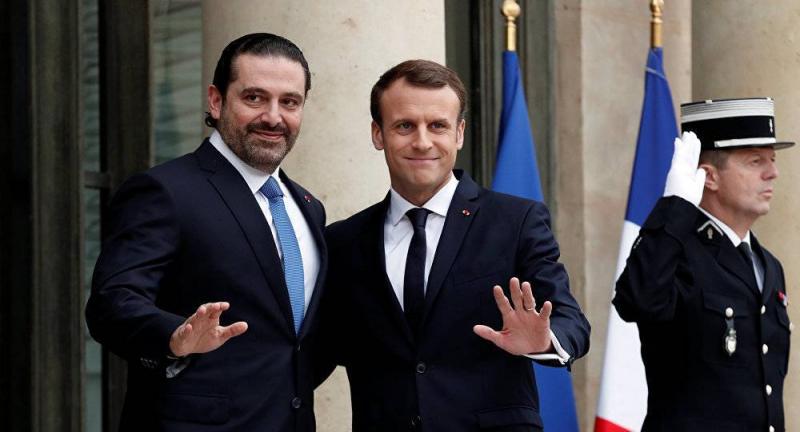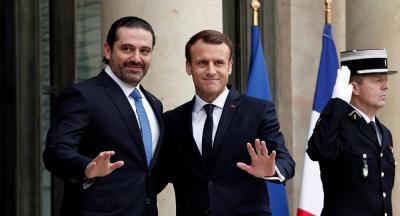The Lebanese newspaper Al-Akhbar revealed today that Paris insists on continuing to produce initiatives to resolve the governmental crisis in Lebanon, in anticipation of the formation of a new cabinet. It hopes to make some progress in breaking through the governmental crisis.
The meeting between French President Emmanuel Macron and Prime Minister-designate Saad Hariri yesterday gave the impression of a "serious French effort," expected to differ from previous attempts that failed miserably. While Beirut awaited the results of Hariri's foreign tour, a new element emerged yesterday, suggesting that regional and international pressures might hasten the formation of the government, as evidenced by a dinner meeting between Hariri and Macron at the Elysee Palace.
According to a statement from Hariri's office, the two-hour meeting addressed the latest regional developments and Hariri's efforts to restore Lebanon's Arab relations and garner support in facing its crises, along with France and its president's efforts to prepare international support for Lebanon once a government capable of implementing the necessary reforms to stop the economic collapse and reconstruct what was destroyed in Beirut due to the port blast last August is formed. The two presidents discussed the internal Lebanese difficulties facing government formation and possible ways to overcome them. Informed sources told Al-Akhbar that "Paris opened its doors to Hariri because the French have serious proposals that could ease the obstacles to forming the government, and they are betting on making some breakthrough. If there were no progress in this regard, this exceptional visit would not have happened at a time when France prohibits the entry of any visitors from outside the European Union."
The same sources considered that "the success of the French initiative this time depends on the approach Paris will present," especially since "the previous initiative brought by French presidential advisor for the Near East Patrick Durel to Lebanon last November was biased in favor of Hariri's demands, supporting him regarding the governmental formula, the number of ministries, the distribution of portfolios, and the selection of names that were involved with Paris." If "the new initiative relies on the same approach, it will be doomed to failure."
The newspaper stated that the Macron-Hariri meeting remains open to numerous interpretations, and while the data in Beirut remain murky and do not indicate developments that would dismantle the points of contention controlling the governmental crisis, most political forces seem to agree that this is a crisis likely to persist for a long time, given the undeterred lines in play. The Prime Minister-designate Saad Hariri continues to travel from one country to another, with the requirement in Baabda being singular, according to insiders.
While waiting for what the new French initiative might bring, which could be followed by subsequent steps and contacts, multiple indicators have emerged confirming that attempts to form a government have yet to mature. The phone call Hariri made to the head of the Progressive Socialist Party, Walid Jumblatt, "did not yield anything promising," and from Baabda, there was confirmation that "no contacts occurred with the President from Paris or elsewhere, and even if this happened, the solution would be through Hariri's consultation with Aoun, not via intermediaries." It was also noticeable that the Future Movement hastened to respond to a report from "OTV" stating that "Hariri is working on a French-backed proposal to solve the ministerial numbers issue by raising it from 18 to 20," clarifying through a political source for the "Mustaqbal Web" website that this "falls more under the category of wishes than facts, and that nothing has changed in the governmental process so far."
Additionally, informed sources disclosed several ideas that were discussed to bridge the perspectives, including inviting Hariri and Deputy Gibran Bassil to France for a reconciliation meeting, but this idea quickly fell through after French advisors received warnings that it is "not well-received by the conflicting parties." There was also talk of a solution to one of the core issues represented by the Ministries of Justice and Interior, which would involve France naming two ministers acceptable to both Aoun and Hariri; however, the President "will not accept that and refuses to enlist the French to pressure him."




